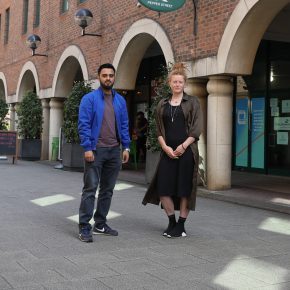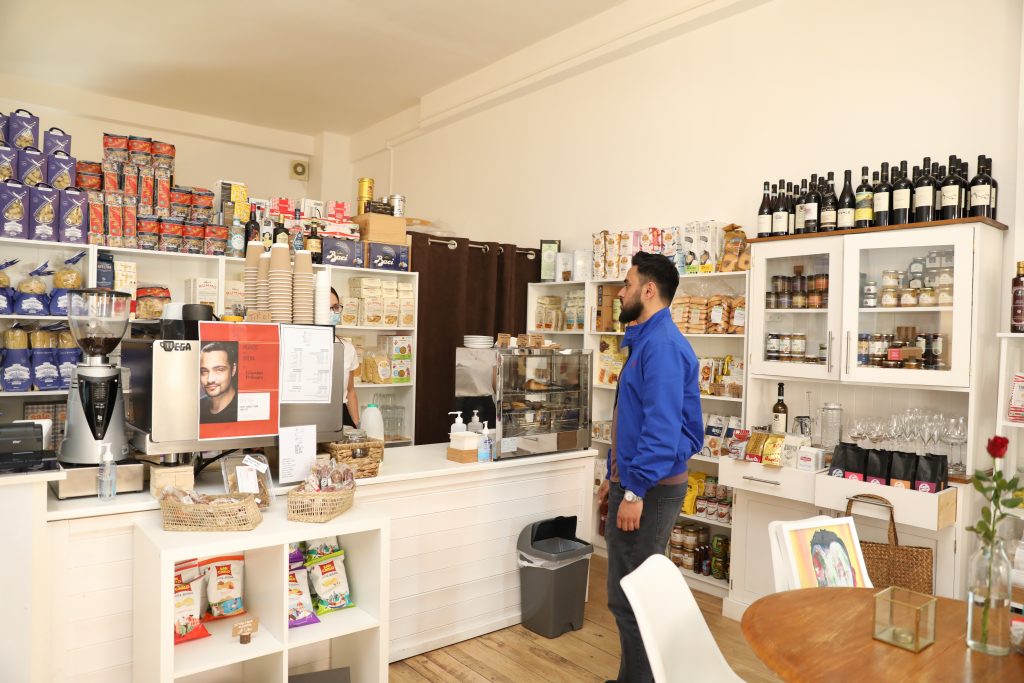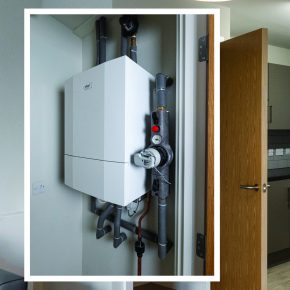
ABC&D ARTICLE: Meanwhile… The Utilize Project
Mahmud Shahnawaz, founder of The Utilize Project, discusses the popularity, effects of, and barriers to, empty space revitalisation in August’s edition of ABC&D Magazine…
As the Coronavirus pandemic put a stop to office working as we knew it, retail businesses made the transition to digital working, and as such commercial rental prices skyrocketed, leaving hundreds of commercial spaces vacant.
Recent data from Statista revealed there’s 20.2 million square feet of unused office space in London alone, excluding other commercial property spaces, such as retail and hospitality developments.
To help combat this issue, empty space revitalisation, also known as meanwhile spaces has, been and will continue to be crucial within the commercial property sector.
What is a meanwhile space?
Meanwhile spaces use temporary contracts that allow community groups, small businesses or individuals to move into vacant spaces and set up shop, on the understanding that they will leave when the landowner requires them to.
According to a 2019 study, there were 51 active meanwhile space sites around the London capital with a combined floorspace of almost 190,000 square metres.
Now, post pandemic, this figure is likely to have catapulted, with The Utilize Project alone housing 80+ SMEs across 8 buildings around Canary Warf area.

What is the need for meanwhile spaces?
A third of development projects have been put on hold due to budget concerns, and delays to large-scale construction projects have more than double since start of pandemic, according to reports.
Such delays mean properties remain vacant for months and often years, leaving communities lifeless and increases the possibility for crime.
Public spaces are known to not only produce positive social and environmental outcomes for residents, but also enhance the area economically.
Sky-high commercial rental rates have meant that many SMEs, social enterprises and community centres which not only add life to a local area, but further boost its economy, are unable to afford to set up shop. This is where meanwhile spaces are desperately needed.

What are the benefits of meanwhile spaces?
Benefits are felt for both the community and the developer, making it an attractive agreement for both parties.
As a result of temporary occupation, developers will welcome lower security costs, with crime levels naturally decreasing once occupancy starts. Further costs, such as non-domestic rates liability will also be mitigated, meaning overall costs are reduced.
For the community, vacant buildings can be transformed into a bustling community space which injects life back into their local area.
As the government looks to revive the high-street as part of the regeneration bill, meanwhile spaces will be crucial for making this a success.
Local economies are also boosted, allowing communities to become more self-sufficient, whilst these temporary businesses and organisations also produce work opportunities for local residents.
What barriers do meanwhile spaces face?
As the meanwhile space industry is fairly immature, there can be misaligned perceptions from both the developer and the temporary occupant. Developers and landowners can often be hesitant to open up residency to third party organisations as meanwhile spaces can carry with it more risks than non-meanwhile.
This is where brokers, such as The Utilize Project, are essential for managing expectations so that the contract and relationship benefits both parties.
There are often barriers when explaining the benefits of housing genuine social projects temporarily over the alternative ways used by landowners to mitigate rates, such as intermittent occupation, which is where a space is occupied for just six weeks in order to activate empty rates relief for the landowner, before being left empty again.
Temporarily housing SMEs and social projects for longer periods of time, not only mitigate rates, but further reap community benefits, reputational benefits and are recommended by Council Policy.
What does the future look like for meanwhile spaces?
With an increasing amount of vacant property, the need to revive high streets, in addition to further education around empty space revitalisation, meanwhile spaces are likely to see expansion.
We are looking to expand our activities throughout London, because we have seen how well it works. We have a system of processes that has scaled well from building 1 to building 12, so we are keen to reach more places and areas.
Latest news

28th April 2025
Nuaire first UK ventilation manufacturer to use low carbon-emissions recycled & renewably produced steel
Nuaire has announced that its Magnelis® steel based ventilations systems are now being made from XCarb® recycled and renewably produced steel.
Posted in Air Conditioning, Articles, Building Industry News, Building Products & Structures, Building Services, Building Systems, Heating, Ventilation and Air Conditioning - HVAC, Restoration & Refurbishment, Retrofit & Renovation, Steel and Structural Frames, Sustainability & Energy Efficiency, Waste Management & Recycling
28th April 2025
Renderplas: Builders avoid costly remedial work with PVCu render beads
A pioneer of PVCu render beads, Renderplas is helping the construction industry avoid the costly remedial work associated with rusting steel designs…
Posted in Articles, Building Industry News, Building Products & Structures, Building Services, Building Systems, Facades, Posts, Render, Restoration & Refurbishment, Retrofit & Renovation, Sustainability & Energy Efficiency, Walls
28th April 2025
How Celotex’s Technical Team adds value through expert insulation support
From U-value calculations to real-world installation support, Celotex’s technical team helps construction professionals specify and install insulation with confidence…
Posted in Articles, Building Industry News, Building Products & Structures, Building Services, Insulation, Research & Materials Testing, Restoration & Refurbishment, Retrofit & Renovation, Sustainability & Energy Efficiency, Walls
28th April 2025
Ideal Heating Commercial takes extra care with the heat network at Huddersfield specialist housing development
Ideal Heating Commercial POD Heat Interface Units (HIUs) and Evomax 2 condensing boilers have been installed into Ash View Extra Care in Huddersfield.
Posted in Articles, Building Industry News, Building Products & Structures, Building Services, Case Studies, Facility Management & Building Services, Heating Systems, Controls and Management, Heating, Ventilation and Air Conditioning - HVAC, Pipes & Fittings, Plumbing, Restoration & Refurbishment, Retrofit & Renovation
 Sign up:
Sign up: